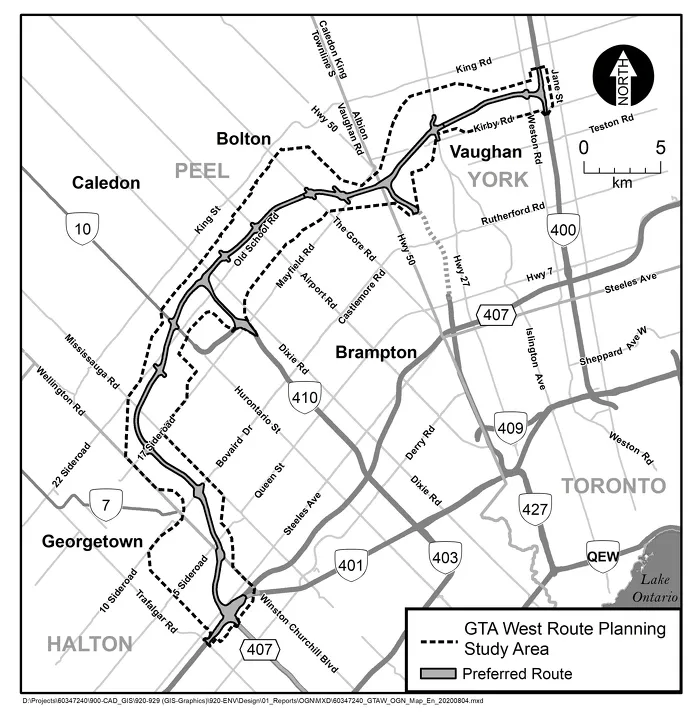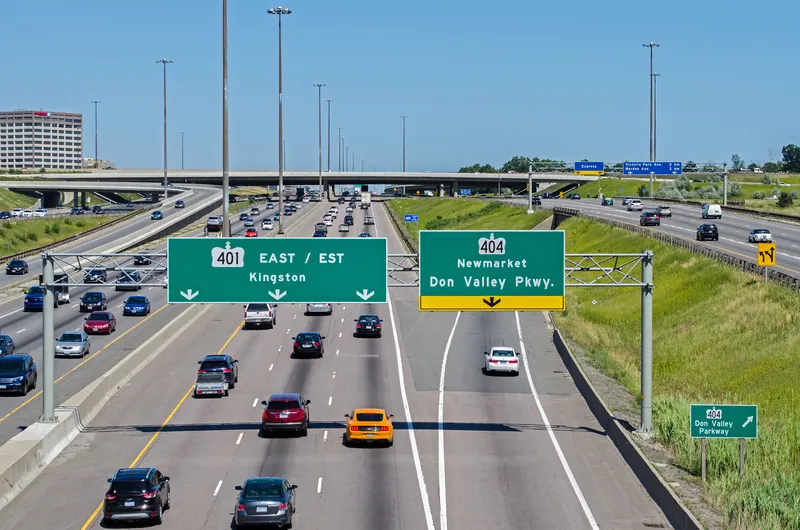
Canadian environmental groups have released a report that they claim reveals the proposed GTA West Highway is a "poor use" of $6 billion (US$4.6 billion).
The GTA West Corridor – also known as Highway 413 - is a proposed motorway near Toronto in the Canadian province of Ontario. It would be an outer orbital beltway around the built-up areas of the towns of Brampton and Vaughan that would permit traffic traveling between Southwestern Ontario and Ontario's cottage country or Northern Ontario to avoid Toronto-focused traffic.
The Ministry of Transportation of Ontario has faced stiff criticism by environmental and other public groups over the years because the route would cut through farmland and greenbelt areas. The argument is that it would encourage more urban sprawl in an area that has seen major expansion of the city limits of Toronto and other towns in the past several decades.
Specifically, the proposed highway would run from Highway 407 near the town of Milton to Highway 400 near the town of Kleinburg. It would be a four-to-six lane 400-series highway with separate infrastructure dedicated to transit and passenger stations, truck parking and incorporate intelligent transportation features. The provincial government said that by 2031, overall traffic on the route would likely exceed 300,000 daily vehicle trips.
The town of Vaughan and the York Region area are reportedly in favour of 413. But in 2017, an investigative panel appointed by the Ontario government declared the highway unnecessary.
In 2018 the Ontario government revived the shelved plan amid continued criticism by concerned groups, including Environmental Defence, Sustainable Vaughan and Transport Action Ontario.
The local YorkRegion.com news website recently reported that Keith Brooks, programmes director with Environmental Defence, also dismissed the highway project as unnecessary. "Highway 413 was cancelled because the public didn’t want it and because experts determined that the social, environmental and economic costs of the highway outweighed the meager benefits that this project could deliver."
Brooks said more people expected to work from home in future so the highway would be redundant.
YorkRegion.com reported that there is concern that about 1,000 hectares of Greenbelt would be affected along with damage from road salt, air pollution and increased greenhouse gas emissions.
Environmental and transportation groups want to see more planning and investment for public transit investment, including the regional GO Regional Express Rail on the Kitchener and Milton corridors, a new GO rail corridor to Bolton and increased bus rapid transit or light rail transit for the towns of Vaughan, Brampton and Mississauga.







